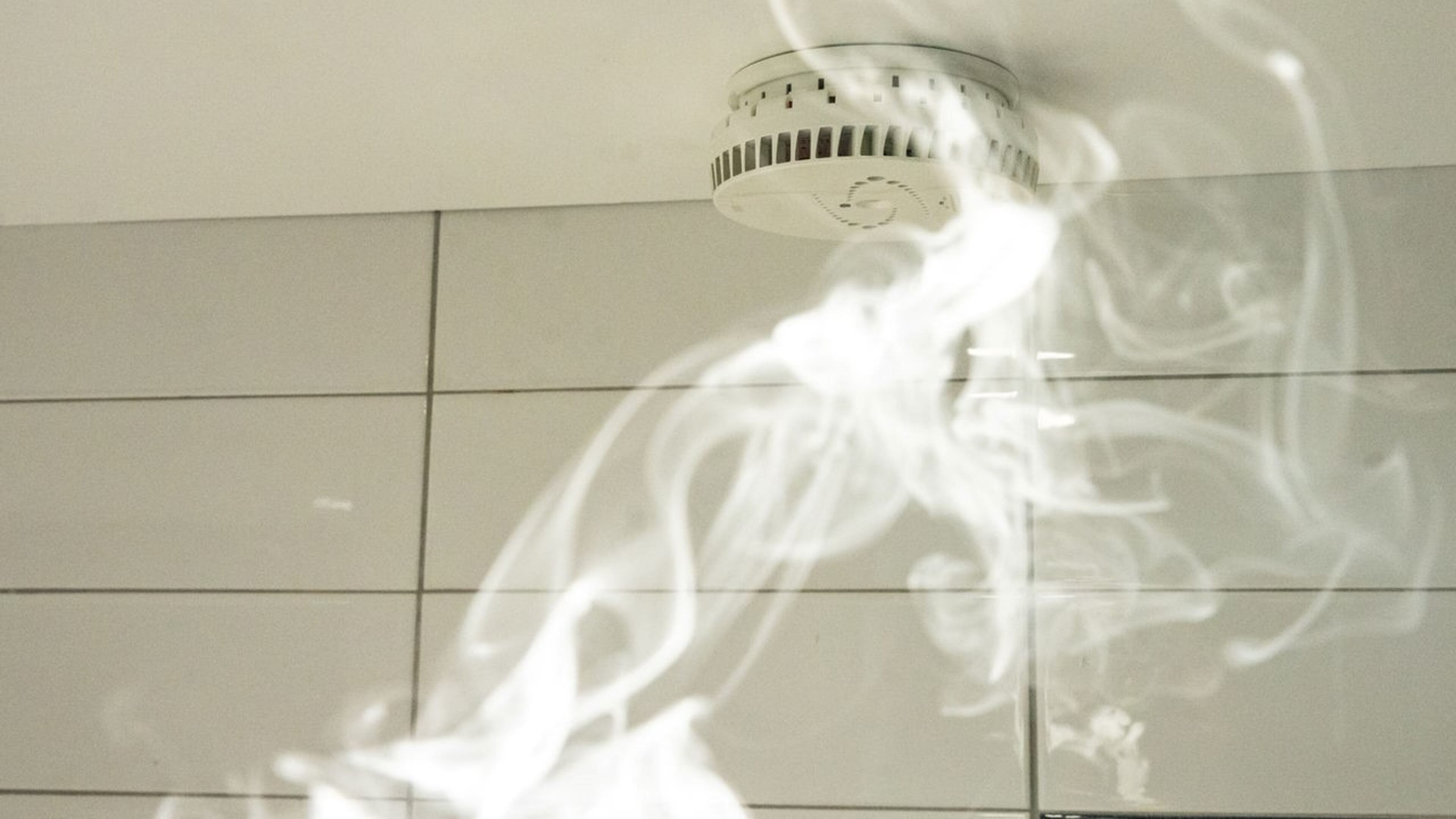News
What’s a vape sensor?

Dozens of schools in metro Atlanta will install vape sensors this year, while more are hesitant about the devices. Schools in DeKalb County and Marietta will use HALO vape sensors, pictured here. (Photo courtesy Motorola Solutions)
While it might look like a smoke detector, a vape sensor isn’t the same.
Schools in Marietta and DeKalb County will begin using HALO vape sensors this year.
How they work: The sensors detect airborne contaminants — like the aerosol emitted by vapes — and attempts to mask it, for example by spraying hair spray. The sensors then alert staff. They do not use cameras or capture audio.
How much they cost: The Halo 3C sensors cost about $1,300 per unit. That doesn’t include software or installation.
How common they are: The company that makes the sensors declined to say how many school systems in Georgia use them. The company said “thousands of schools” in the U.S. use them.


